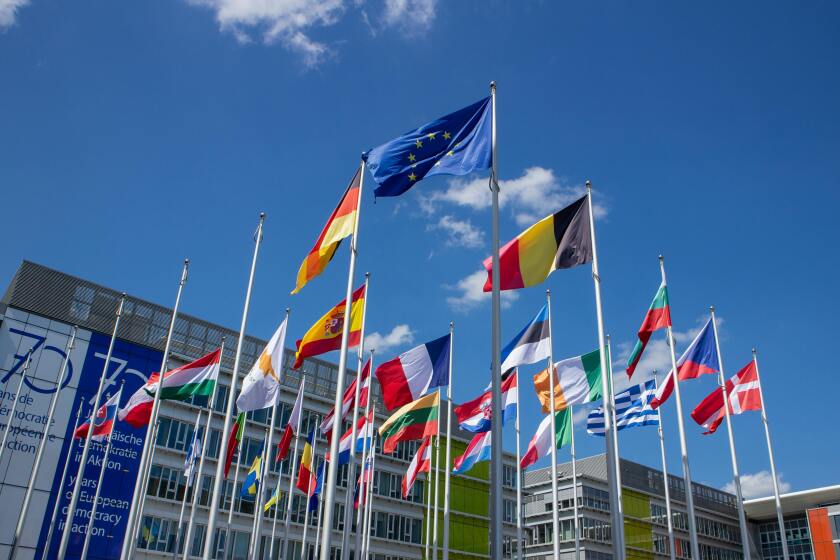The European Commission aims to specify and extend the scope of the so-called Bolar exemption and harmonise it across the EU through Article 85 of the proposed Directive of the European Parliament and of the Council on the Union code relating to medicinal products for human use, and repealing Directive 2001/83/EC and Directive 2009/35/EC.
The Roche–Bolar rule: the status quo
With regard to experimental privilege – in particular, for obtaining marketing authorisations for medicinal products – the Bolar exemption was introduced through Section 11, No. 2, letter (b), of the German Patent Act (PatG) in 2005 in implementation of Article 10, paragraph 6, of Directive 2001/83/EC (as amended by Directive 2004/27/EC and Directive 2004/24/EC).
This market access privilege represents a further exception to comprehensive patent protection and – as a lex specialis in relation to the experimental privilege of Section 11, paragraph 2, of the PatG – allows studies and trials to be carried out that are necessary to obtain marketing authorisation for medicinal products in the EU or a marketing authorisation for medicinal products in the member states of the EU or in third countries. The rule is intended to enable generic manufacturers to enter the market immediately after the patent protection of the respective reference medicinal product has expired.
However, different interpretations of the provisions in the national laws make it difficult to assess the scope of application. This applies, in particular, with regard to acts of provision by third parties. For example, in 2013, the Higher Regional Court of Düsseldorf referred the question to the European Court of Justice (decision of December 5 2013, case No. I-2 U 68/12) as to what requirements suppliers of patented active substances must impose on generic manufacturers so that they, in turn, can carry out the research privileged under Article 10, paragraph 6, of Directive 2001/83/EC with regard to the authorisation of the generic product.
Since the European Court of Justice did not provide a corresponding answer due to the discontinuation of the national proceedings, the opinion of the higher regional court is often used when assessing the questions in this context. According to the Higher Regional Court of Düsseldorf, the importation of an active ingredient manufactured in a patent-free foreign country and imported into a patent-protected country for the purpose of conducting trials also falls under the Roche–Bolar rule if the third party can assume, based on the overall circumstances at the time it performs the act of ‘making available’, that the active ingredient it has made available will actually be used exclusively for privileged approval trials and studies.
Other national interpretations make the assessment more difficult and there is some uncertainty throughout the EU.
The proposed new rule
The European Commission aims to specify and extend the scope of the exemption and harmonise it across the EU. According to Article 85, letter (a), of the draft Directive, acts of use for studies, trials, and other activities carried out to obtain data for an application for the following procedures are to be privileged:
An authorisation of generics, biosimilars, hybrid medicinal products, or biohybrid medicinal products and for subsequent variations;
An assessment of health technologies within the meaning of Regulation (EU) 2021/2282; and
Pricing and reimbursement.
As a result, the proposed measures are intended to facilitate faster market entry of generics and biosimilars, thereby strengthening competition and contributing to the objectives of affordability of medicines and patient access.
Amendments by the European Parliament
For ease of reference, a comparison of the main changes to the text by the European Parliament compared with the European Commission proposal is included below (see pages 115–116 of the legislative resolution of the European Parliament of April 10 2024, COM(2023)0192 – C9-0143/2023 – 2023/0132(COD)).
Article 85
European Commission proposal | Amended text (European Parliament) |
“Patent rights, or supplementary protection certificates […] shall not be regarded as infringed when a reference medicinal product is used for the purposes of: (a) studies, trials and other activities conducted to generate data for an application, for: (i) a marketing authorisation of generic, biosimilar, hybrid or bio-hybrid medicinal products and for subsequent variations; (ii) health technology assessment as defined in Regulation (EU) 2021/2282; (iii) pricing and reimbursement.” | “Patent rights, or supplementary protection certificates […] shall not be regarded as infringed when necessary studies, trials and other activities are conducted for the purpose of: (i) obtaining a marketing authorisation and subsequent variations; (ii) conducting a health technology assessment as defined in Regulation (EU) 2021/2282; (iii) obtaining pricing and reimbursement approval; and (iiia) the subsequent practical requirements associated with such activities.” |
While the currently vague wording of the “subsequent practical requirements associated with such activities” had been deleted from the European Commission’s proposal, the European Parliament has now reinstated this wording. In addition, “a reference medicinal product” has been deleted. The reference to “generic, biosimilar, hybrid or bio-hybrid medicinal products” has been deleted without replacement in paragraph 1(a), point (i), so that the wording now only provides for “(i) obtaining a marketing authorisation and subsequent variations”.
If one assumes that the content of paragraph 1, letter (b), intended by the European Commission will prevail, this will, in any case, improve legal certainty for generics manufacturers and their suppliers but will also be a disadvantage for originators.
Article 85a
European Commission proposal | Amended text (European Parliament) |
Not available | “Article 85a Non-interference of intellectual property rights 1. Member States shall consider the procedures and decisions referred to in Article 85 as regulatory or administrative procedures which, as such, are independent from the enforcement of intellectual property rights. 2. The protection of intellectual property rights shall not be a valid ground to refuse, suspend, delay, withdraw or revoke decisions referred to in Article 85. 3. Paragraphs 1 and 2 shall apply without prejudice to the Union and national legislation relating to the protection of intellectual property.” |
Further alignment
In the amended version adopted by the European Parliament, the newly inserted Article 85a on the “Non-interference of intellectual property rights”, which provides that the proceedings and decisions referred to in Article 85 are to be considered as legal or administrative proceedings “which, as such, are independent from the enforcement of intellectual property rights”, is surprising. In particular, it is unclear how paragraph 3 is to be understood: “Paragraphs 1 and 2 shall apply without prejudice to the Union and national legislation relating to the protection of intellectual property.”
It remains to be seen whether the European Parliament’s proposal can prevail in the further procedure.












